Potřebujeme váš souhlas k využití jednotlivých dat, aby se vám mimo jiné mohly ukazovat informace týkající se vašich zájmů. Souhlas udělíte kliknutím na tlačítko „OK“.
ASTM D5188-14
Standard Test Method for Vapor-Liquid Ratio Temperature Determination of Fuels (Evacuated Chamber and Piston Based Method)
Automaticky přeložený název:
Standardní zkušební metoda pro Vapor-Liquid Ratio teploty Stanovení paliv (Vakuové komory a pístu Based Method)
NORMA vydána dne 1.1.2014
Informace o normě:
Označení normy: ASTM D5188-14
Poznámka: NEPLATNÁ
Datum vydání normy: 1.1.2014
Kód zboží: NS-30187
Počet stran: 5
Přibližná hmotnost: 15 g (0.03 liber)
Země: Americká technická norma
Kategorie: Technické normy ASTM
Kategorie - podobné normy:
Anotace textu normy ASTM D5188-14 :
Keywords:
gasoline, gasoline-oxygenate blends, petroleum products, T(V/L = 20), vapor-liquid ratio, ICS Number Code 75.160.20 (Liquid fuels)
Doplňující informace
| Significance and Use | ||||||||||
|
5.1 The tendency of a fuel to vaporize in automotive engine fuel systems is indicated by the vapor-liquid ratio of the fuel. 5.2 Automotive fuel specifications generally include T (V/L = 20) limits to ensure products of suitable volatility performance. For high ambient temperatures, a fuel with a high value of T(V/L = 20), indicating a fuel with a low tendency to vaporize, is generally specified; conversely for low ambient temperatures, a fuel with a low value of T(V/L = 20) is specified. |
||||||||||
| 1. Scope | ||||||||||
|
1.1 This test method covers the determination of the temperature at which the vapor formed from a selected volume of volatile petroleum product saturated with air at 0 °C to 1 °C (32 °F to 34 °F) produces a pressure of 101.3 kPa (one atmosphere) against vacuum. This test method is applicable to samples for which the determined temperature is between 36 °C and 80 °C (97 °F and 176 °F) and the vapor-liquid ratio is between 8 to 1 and 75 to 1. 1.2 This test method is applicable
to both gasoline and gasoline-oxygenate blends.
1.2.1 Some gasoline-oxygenate blends may show a haze when cooled to 0 °C to 1 °C. If a haze is observed in 1.3 The values stated in SI units are to be regarded as standard. The values given in parentheses are provided for information only. 1.4 This standard does not
purport to address all of the safety concerns, if any, associated
with its use. It is the responsibility of the user of this standard
to establish appropriate safety and health practices and determine
the applicability of regulatory limitations prior to use.
Standard Practice for Statistical
Assessment and Improvement of Expected Agreement Between Two Test
Methods that Purport to Measure the Same Property of a Material Standard Practice for Manual Sampling of
Petroleum and Petroleum Products Standard Test Method for Distillation of
Crude Petroleum (15-Theoretical Plate Column) Standard Practice for Applying
Statistical Quality Assurance and Control Charting Techniques to
Evaluate Analytical Measurement System Performance (Includes all
amendments and changes 12/12/2023). Standard Test Method for Vapor-Liquid
Ratio of Spark-Ignition Engine Fuels (Withdrawn 2008) |
Podobné normy:
Historická
1.11.2012
Historická
1.10.2010
Historická
1.5.2011
Historická
15.1.2014
Historická
1.6.2014
Historická
1.12.2012
Doporučujeme:
Aktualizace technických norem
Chcete mít jistotu, že používáte pouze platné technické normy?
Nabízíme Vám řešení, které Vám zajistí měsíční přehled o aktuálnosti norem, které používáte.
Chcete vědět více informací? Podívejte se na tuto stránku.


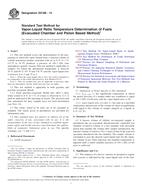
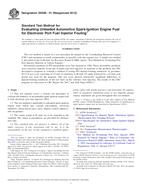 ASTM D5598-01(2012)..
ASTM D5598-01(2012)..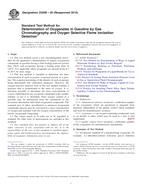 ASTM D5599-00(2010)..
ASTM D5599-00(2010)..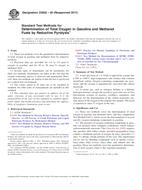 ASTM D5622-95(2011)..
ASTM D5622-95(2011)..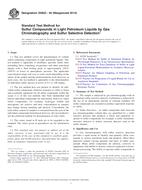 ASTM D5623-94(2014)..
ASTM D5623-94(2014)..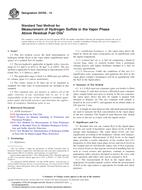 ASTM D5705-14
ASTM D5705-14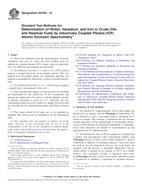 ASTM D5708-12
ASTM D5708-12
 Cookies
Cookies
